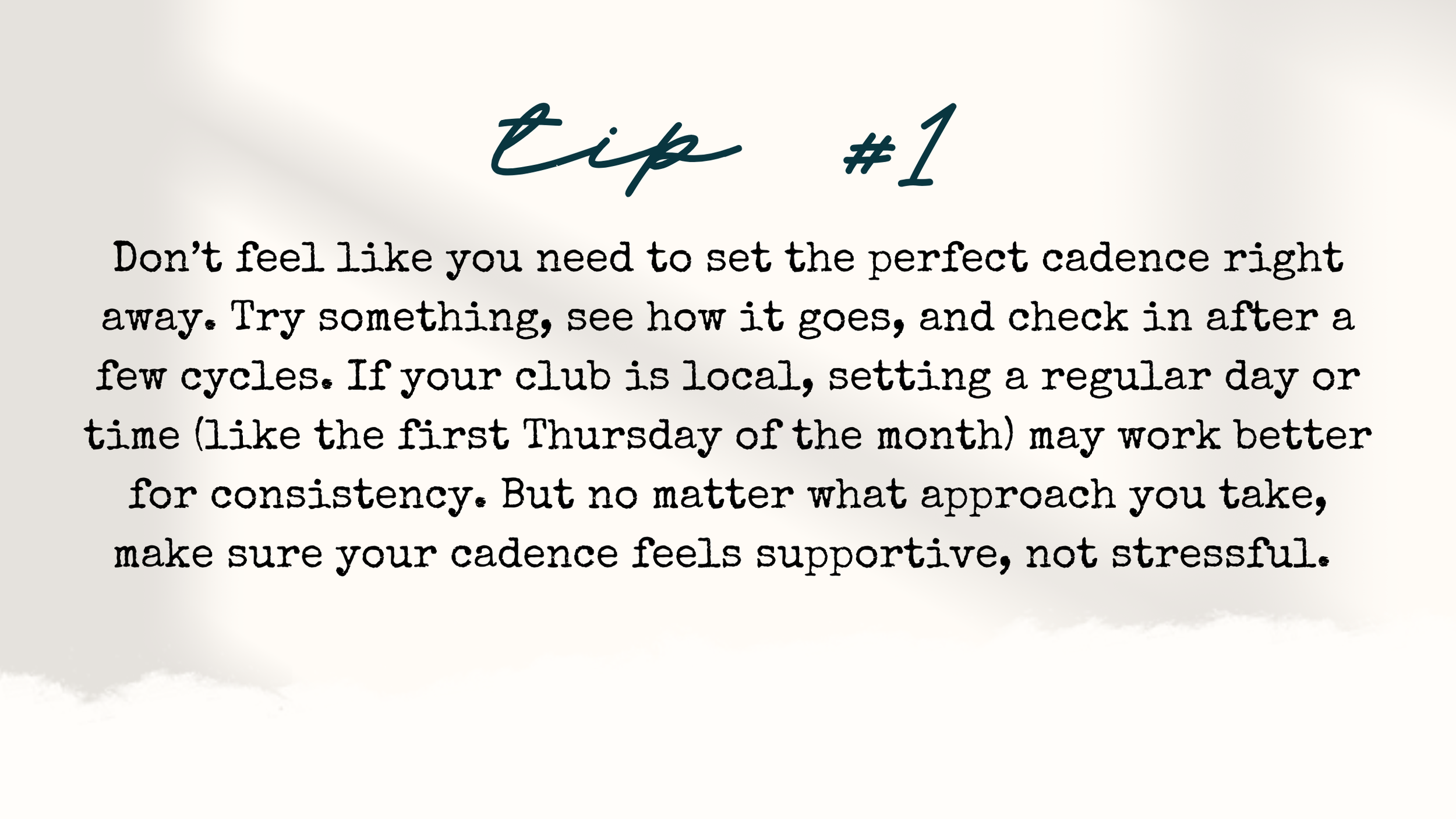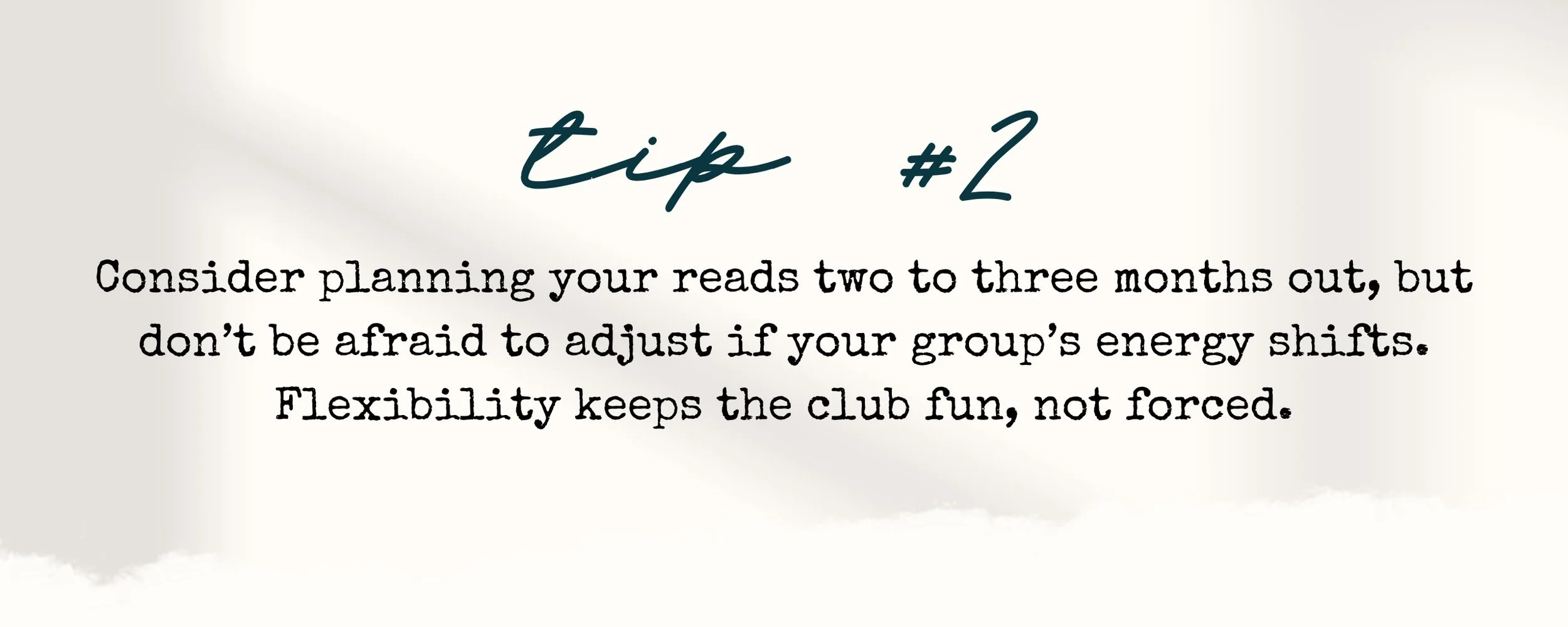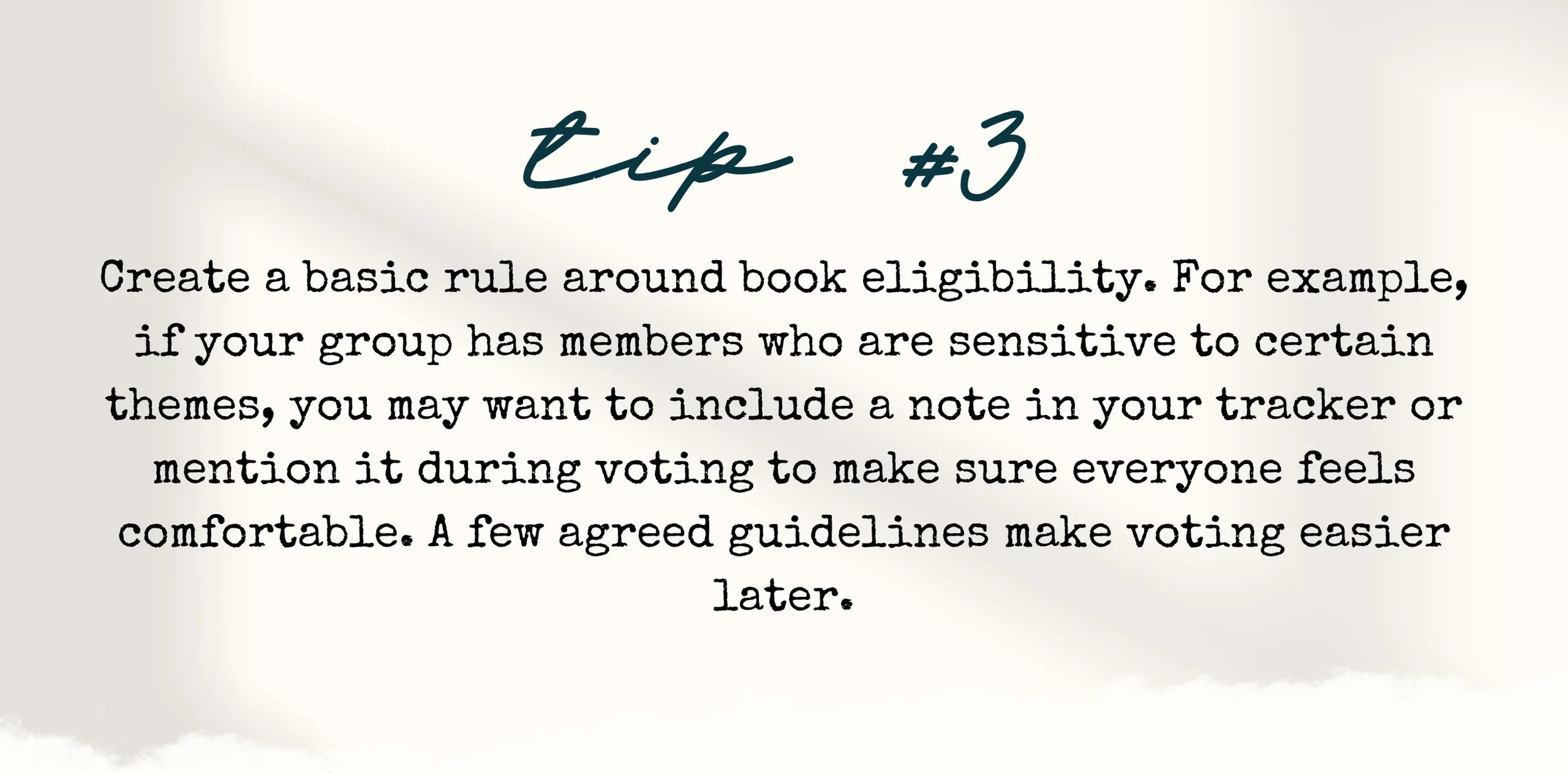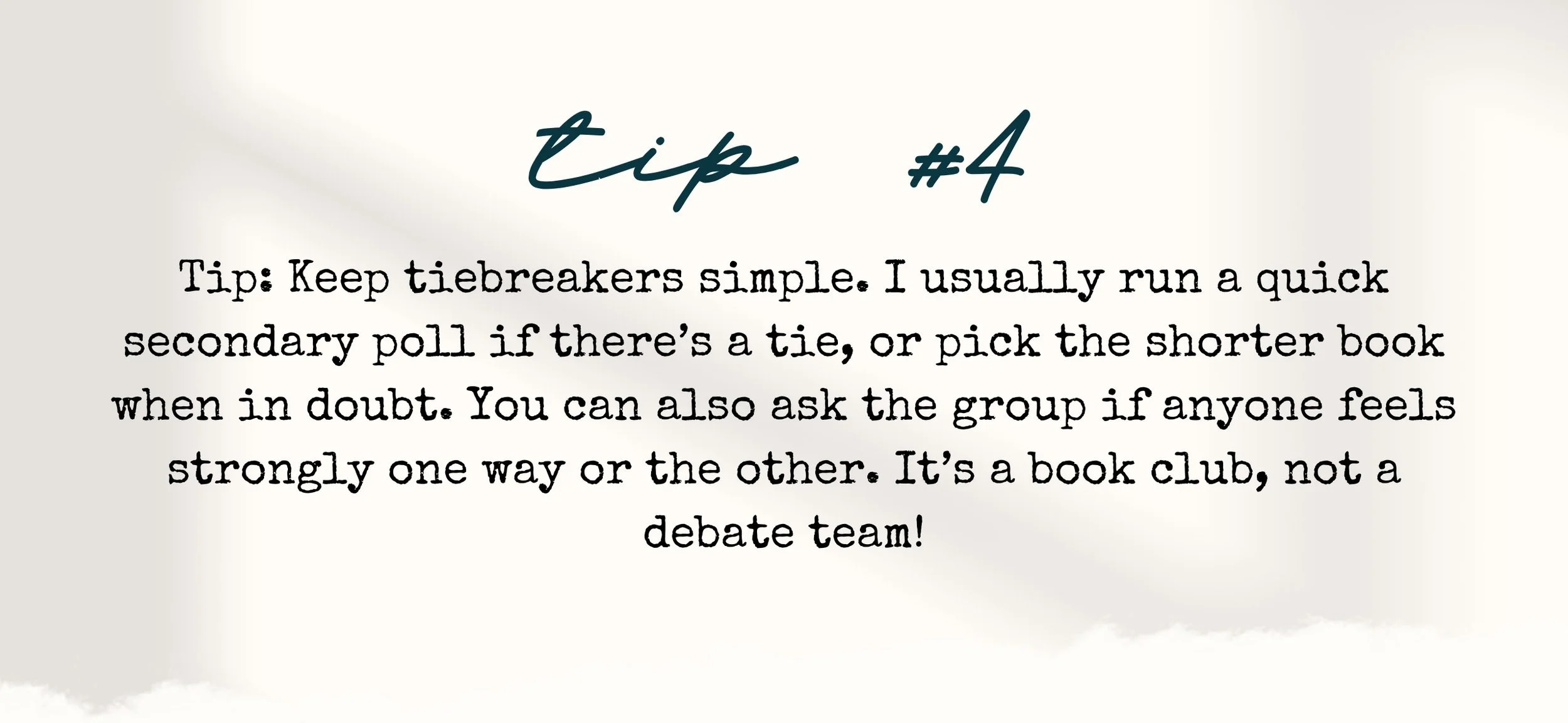Tips for organizing your book club’s reading list
When I first started my book club, I didn’t have a grand plan or even a clear objective. I just wanted to read the ACOTAR series with a few friends who lived overseas and geek out about every juicy chapter. So I created a free club on Fable, invited my friends, and off we went, sharing reactions in the app and jumping on a call at the end of each book to talk about everything we loved (or didn’t).
But here’s the thing. I’m a marketing professional by day, and I’ve spent most of my career working at small companies and startups where you have to wear a lot of hats. Content strategy, campaign planning, email, social, copywriting… you name it, I’ve probably done it. When you’re juggling that many things, having reliable systems becomes essential. I naturally gravitate toward structure, but I also love a mix of tools. I use a project management app (Asana), keep handwritten to-do lists, scribble ideas in a notebook, and use GoodNotes when I need something more flexible. That habit of organizing chaos quickly spilled over into my book club, and before long, it had its own structure, too.
I built a nomination form with an automated tracker. I created a system to vote and plan books ahead. And now, even as our club has grown and changed, the process of managing it still feels easy and fun.
So today, I’m sharing a few tips that helped me organize our reading list and schedule in a way that supports our members without turning it into a full-time job. If you're looking to make your club feel a little more effortless, these are a great place to start.
Choose your cadence early but be flexible
One of the first things your group should talk about is cadence (i.e., how often you want to read and meet). Some people fly through books in a weekend. Others are juggling work, family, and maybe a few different reads at once. Finding a rhythm that works for most people is key.
In my club, we initially started with a new book every two weeks but quickly realised it was too much. Now we meet roughly every four weeks, and it gives everyone a bit more breathing room.
If you’re just starting out, bring it to the group. What feels realistic? Every four to six weeks is a great place to begin, but it’s okay to adjust as you go. Just check in with your members regularly to see how things are working. And if someone can’t make a meeting now and then, no stress. We all have lives outside of reading and book club, and the best groups understand that.
For example, since my group spans time zones (I’m in Australia and most of my members are in Texas), we don’t set a recurring meeting schedule. Instead, we figure out our next meeting day and time at the end of each virtual discussion. That way, we can accommodate everyone’s availability and avoid scheduling stress.
Plan ahead (but don’t overdo it)
Having a few books lined up in advance reduces decision fatigue and keeps your group moving. We usually vote on the next four books in one go so members know what’s coming and can grab library holds or audiobook credits early. But I’ll be honest… as a mood reader, I don’t always feel like reading what’s next on the list.
If that happens, you’ve got a few options:
Try reading it anyway. Sometimes a book surprises you when you give it a shot.
Sit this one out. It’s totally fine to skip a pick if it doesn’t vibe with you. You can still join the discussion and listen in (as long as you don’t mind spoilers).
Call for a re-vote. If it feels like more than one person is off it, bring it back to the group. You might not be the only one no longer in the mood.
Keep your list somewhere shared and simple
While you don’t need an overly complicated setup, having a shared file or space where your club members can see the book nominations is genuinely useful, especially as your list grows over time. It’s not just about staying organised for the sake of it. It’s about making things easier when it comes time to vote or choose your next few reads.
I use a Google Sheet that includes:
Book title and author
Who nominated it
Genre
Whether it’s part of a series (and which number it is)
A direct link to the book’s Goodreads or Amazon page
A short synopsis or summary
Having this information in one place saves everyone from having to look each title up, especially when it’s time to vote. It gives your members a quick snapshot of what each book is about so they can make informed choices based on what they’re in the mood for. You can also include a few details in your voting polls to make the process even easier.
It also helps prevent duplicates. Over time, people forget what’s already been suggested or read. With a shared tracker, it’s easy to check whether a book is already on the list or has already been picked.
Let your group help choose the picks
Once you’ve gathered nominations, giving your group an easy way to vote is what makes the process collaborative and fun. It helps everyone feel like they have a say in what the club reads, which can increase engagement, especially if you’ve got a mix of personalities or reading styles in the group.
I typically post a poll using the built-in tool on Fable or drop a simple multiple-choice poll in our WhatsApp chat. We rank the top four vote-getters and plan our upcoming reading schedule based on that order. Keeping the voting process lightweight means we’re never stuck in long back-and-forths about what’s next.
That said, just because you plan four books in advance doesn’t mean you have to stick to that order no matter what. As I mentioned in point 2, things can change. If a book no longer feels right for the group or you’re just not in the mood, it’s okay to call for a re-vote or make a swap. Flexibility is part of what keeps the experience enjoyable.
Want a little help getting organized?
If putting together your own tracker sounds like one more thing on your to-do list, I’ve got you covered.
I’ve created a free Reading List & Tracker in Notion to help you stay organized. It’s the same structure I use for my own club, with space to track nominations, add quick book summaries, link to Goodreads or Amazon, and plan out your next few reads.
Whether you're running a club or just want to keep track of your own reading list, this template is fully customizable and easy to use.
You can grab the template here. It’s totally free to download, and when you request it, you can also opt be added to the Story Sippers email list so you can get future tips, tools, and resources to keep your bookish life running smoothly.






